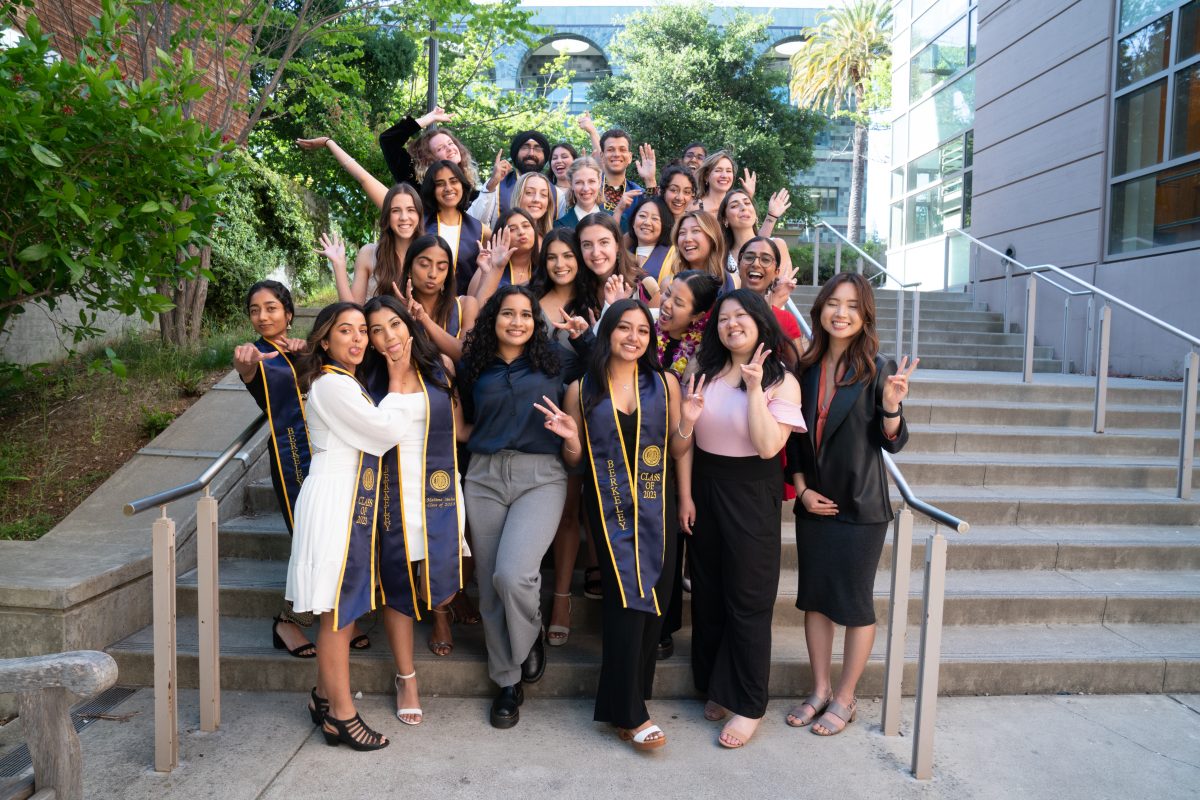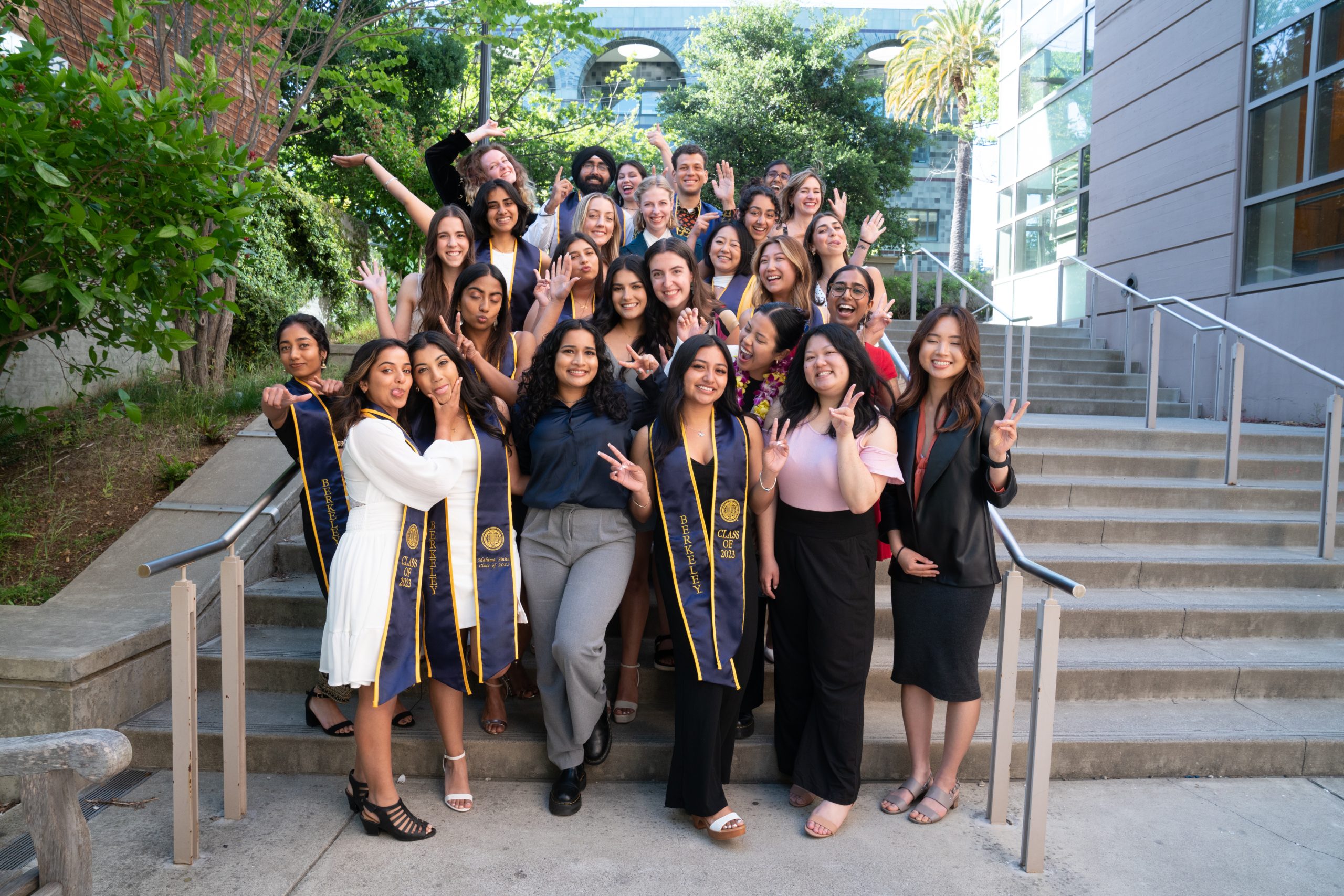
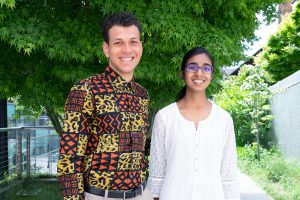
Samyukta Shrivatsa arrived at Berkeley knowing the huge privilege it was to receive an education at Cal — indeed, what a huge privilege it was to even afford the flight all the way here from India. She came in wanting to change the world for the better, and do so “with an A-plus.”
Then the pandemic hit. The magnitude of the problems it caused and revealed left Shrivatsa, a peer advisor of the Global Poverty and Practice minor who graduated last week, feeling ready to throw in the changemaker towel.
But that was when she discovered the GPP minor — “or perhaps,” she mused to her fellow graduates, “when GPP found me.”
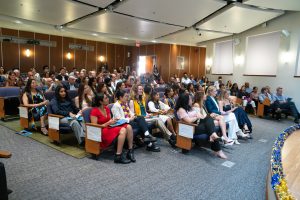
While the paths taken by the 60 newly minted GPP alumni to and through the minor differed greatly, they ultimately converged May 15 at Sutardja Dai Hall’s Banatao Auditorium following classes on poverty alleviation, a hands-on “practice experience” combining theory with practice, and deep reflection on what they learned. GPP’s 16th graduating class drew from 25 different majors and has joined an alumni community numbering over 1,000.
“We went into this thinking we were alleviating poverty for others,” said Shrivatsa, who is preparing to start an environmental engineering PhD at Stanford, “but we came to understand that we were really doing this for ourselves and that there is infinite hope in recognizing that, thankfully, none of us are alone in shouldering this responsibility.
“There is so much power in recognizing the process of working for change as its own reward: All one has to do is stay the course, regardless of where the path leads.”
Prof. Dan Fletcher, faculty director of the Blum Center, which houses the minor, pointed out that the graduating class weathered pandemic disruptions in the classroom, during their practice experiences, and in their personal lives — not because the GPP program was required of them but “because of their commitment to these ideals.”
“As champions of social justice,” Fletcher said, “they represent the best of UC Berkeley.”
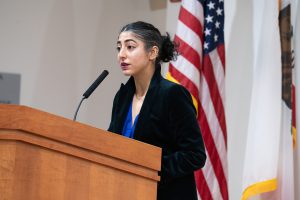
Keynote speaker and anthropology professor Aarti Sethi marveled at students’ ability to accomplish all that while having to do so much to take care of themselves, their families, and others. “Thank you for teaching us about resilience,” she said.
Sethi asked students to consider the “heart of the liberal university”: libraries — those “spaces of autodidactism” where one could discover the world’s vastness and interestingness, be transported to new places, find intellectual freedom, and wander without purpose. In a world where the uneven distribution of power and resources divides us into those who must “live in need” and those with the privilege to “live in desire,” it’s the latter — a cultivation of “impractical pleasures” — that is a worthy goal to pursue not just for ourselves but for others.
All people have a right to to build an “impractical relationship to the world,” Sethi said. “What an education here can do and should do is to question this division and to create conditions in which everyone can live without purpose in some aspect of their life.”
Thomas Kouyate, a molecular and cell biology major preparing for a position at Boston Children’s Hospital, recalled the minor as one of Berkeley’s biggest draws. He grew up in Senegal and remembers seeing poverty everywhere while he and his friends had the latest material goods. For a time, he accepted that reality.
Understanding the roots of poverty came through interactions with his classmates, faculty, GPP staff, his parents, and “debunking those lies we were taught” about what causes such stark inequality. “We’re not here to solve poverty in a single day,” he discovered, “but rather that we’re here to understand that it starts with us, one day at a time, at a small scale.”
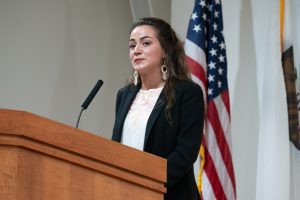
Kouyate took that wisdom back to Dakar, Senegal, where he did his practice experience at a hospital and with the country’s National Tuberculosis Control Program. He implored his classmates not to become inured to the giant, complicated issues they’ve committed to grappling with: “My hope is that we keep serving and loving those in need, knowing that they will not be able to pay us back.”
That kind of optimism was what alumna speaker Peyton Provenzano most liked about being a student at Berkeley — that students could make their campus and the world a better place.
“The challenge for all of you will be translating that optimism and spirit of the Berkeley campus into your lives beyond the university,” said Provenzano, who just finished her JD at Berkeley Law. “It’s not naive to believe in the prospect of a more just, equitable, and kind world.” The students before her, she added, are uniquely equipped to be the change they want to see.
But progress won’t be linear, Provenzano warned; the inevitable setbacks can’t be cause for discouragement. “Contributions large and small do make a difference.”
For Shrivatsa, these large and small impacts, as well as how the graduating class arrived at them in the first place, form the stories that shape how we see the world around us.
“GPP has been a process of tearing down everything we thought we knew about the world and rewriting the stories we tell about it,” she told her peers and commencement attendees. And the story that GPP tells “is one of audacious hope in the world and each other.”
